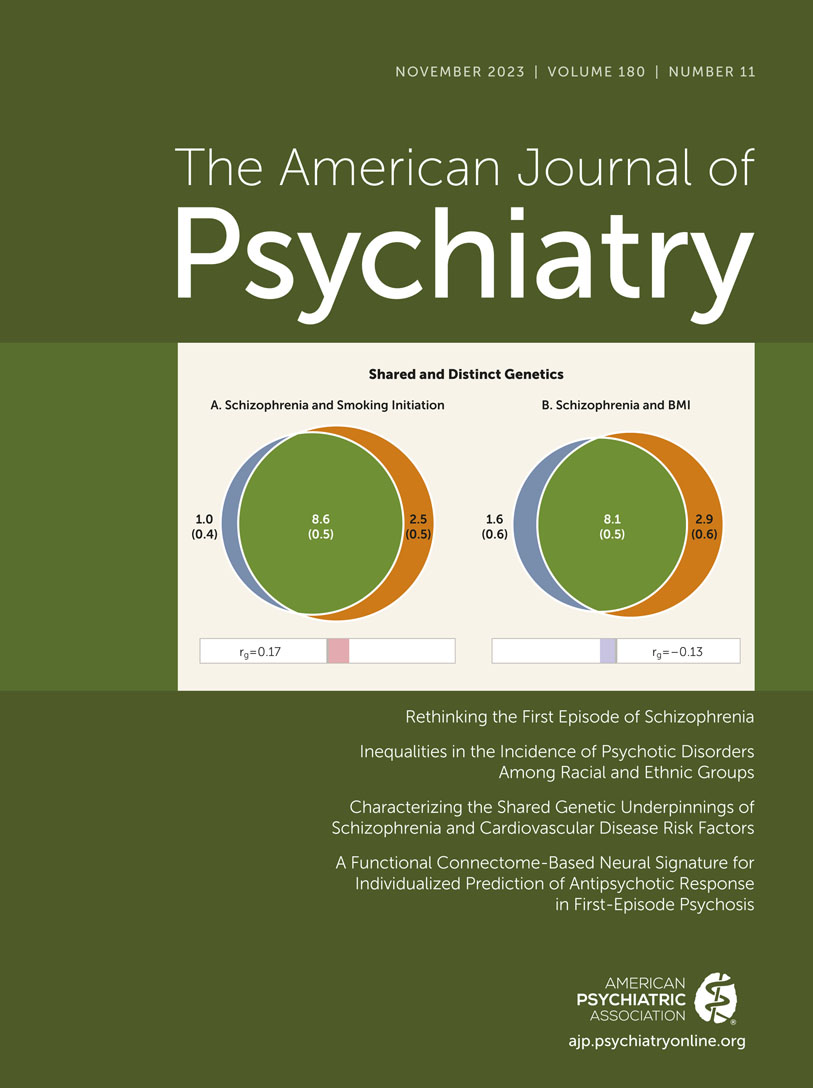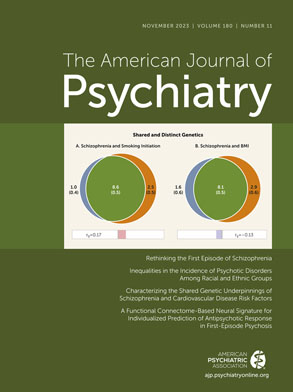We are grateful for the thoughtful letter provided by Drs. Lin and Hsieh on our recent publication (
1) examining the association between anticholinergic medication burden and diminished MMN and P3a response. We acknowledge the points raised and wish to provide further clarification. First, we agree that the Anticholinergic Cognitive Burden (ACB) scale is not informed by dosing specificity, nor has been it been validated for use in longitudinal analyses investigating relationships between neurophysiological biomarkers and cognition-function measures in schizophrenia. Such studies are necessary and will undoubtedly be critical to the field. Second, as COGS-2 was a cross-sectional study, we acknowledge the limitations of our analyses in fully accounting for potential confounds related to illness severity, as the design did not allow for a deeper investigation of cause-and-effect relationships. We elected to not include duration of illness in our cohort, as this was highly correlated with age (r=0.79) and already included in our modeling. Controlling for hospitalizations via partial correlation analyses does not eliminate relationships between ACB and MMN (uncontrolled, r=0.17, p<0.001; controlled r=0.13, p=0.003) or P3a (uncontrolled, r=−0.12, p=0.005; controlled, r=−0.10, p=0.025); including number of hospitalizations in our regression analyses does not alter the significance of relationships, nor does it significantly change the variance accounted for in the final models reported. However, to Drs. Lin and Hsieh’s point, duration of illness and number of hospitalizations were assessed via recall at study entry, which may have been difficult for some participants to accurately self-report, especially if they participated in COGS-2 decades after symptom onset or had experienced numerous hospitalizations. A more definitive understanding between duration of illness and relapse history/treatment resistance, and ACB-early auditory information processing (EAIP) relationships, will require use of comprehensive and reliable longitudinal data sets which include symptom characterization, cognitive performance, medication history, biomarkers response, and health care utilization. We are actively exploring other methods to probe indicators of illness severity, including the use of polygenic scores for both cognition and schizophrenia risk. We believe that this approach may provide a more nuanced understanding of the complex interplay between genes, medications, clinical, cognitive, and psychosocial outcomes in schizophrenia.
We thank Drs. Hsieh and Lin for their insightful comments and interest in our work. We hope that our response helps clarify our results and promotes important discussions about medication factors and cognitive health to better serve individuals living with chronic psychoses.

